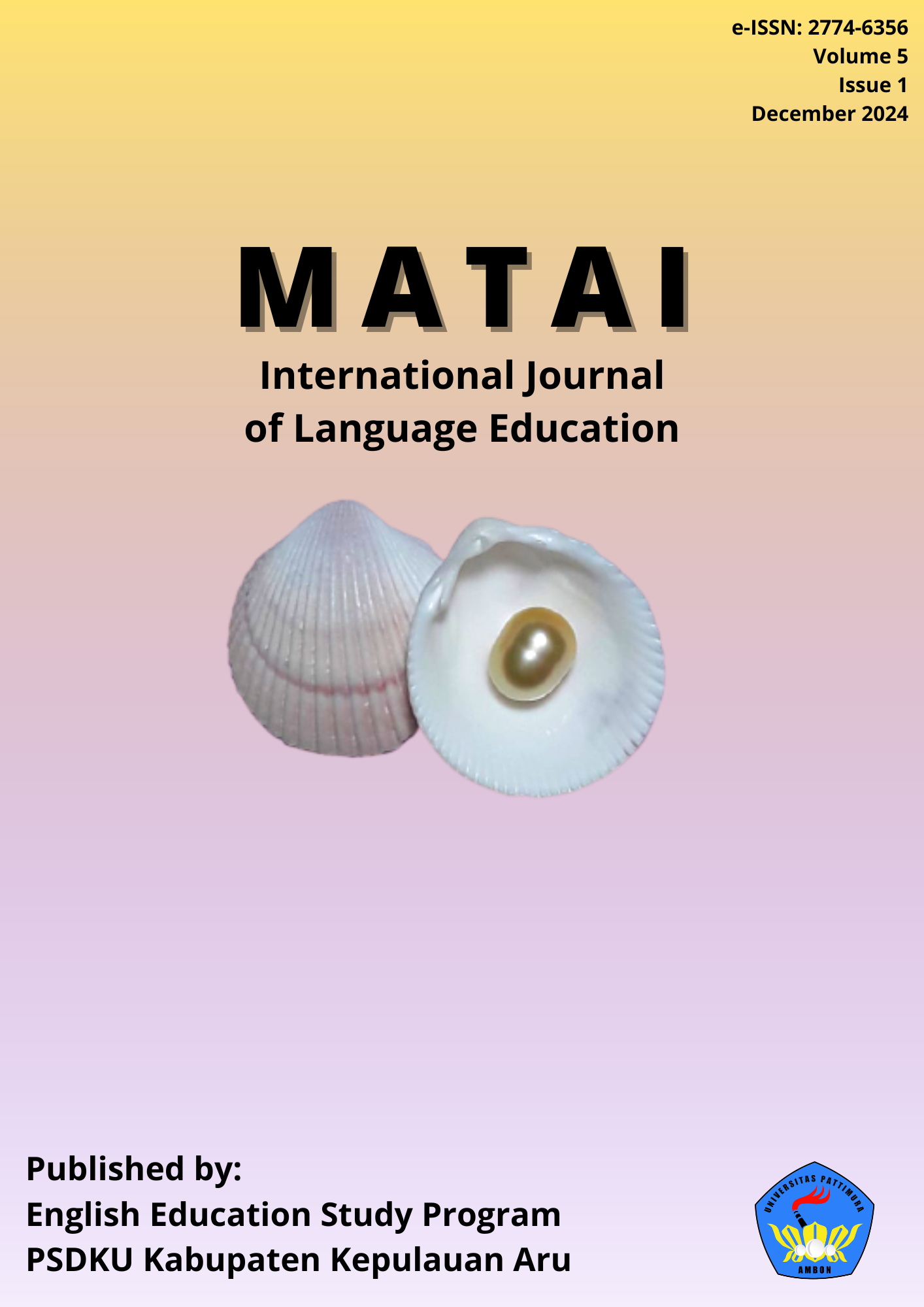Exploring Anxiety in EFL Students' Speech Production
Causes and Remedies in the English Education Study Program at PSDKU Aru
Abstract
Speaking anxiety is a prevalent issue that significantly hinders the learning process for students of English as a Foreign Language (EFL). This study aims to explore the causes of speaking anxiety among EFL students at PSDKU Aru and to identify coping strategies that may help mitigate the anxiety. The significance of this research lies in its focus on understanding the multifaceted nature of speaking anxiety, which includes both psychological and physiological dimensions, and its impact on students' ability to learn and communicate effectively in English. Data were collected from 37 students in the English Education Study Program using a structured questionnaire, which measured different types of anxiety, contributing factors, and the coping mechanisms students adopted. Results revealed that a substantial number of students experienced various forms of speaking anxiety, such as nervousness, tense body language, and fear of negative evaluation. Factors contributing to this anxiety include lack of vocabulary, fear of making grammatical errors, and low self-confidence. Several strategies were used by students to manage their anxiety, such as regular practice, relaxation techniques, and positive thinking. The findings of this study suggest the need for targeted interventions in educational practices to create a supportive learning environment that encourages students to overcome anxiety and become more confident speakers of English. This paper provides insights that can assist educators in designing effective teaching methods to alleviate the impact of speaking anxiety on EFL learners.
Downloads
Copyright (c) 2024 Stella Rose Que, Punggulina A. Tiven, Takaria Warbanaran

This work is licensed under a Creative Commons Attribution 4.0 International License.
Authors who decide to share their articles with this journal must agree with these requisites:
|
1. The author, as the copyright owner, gives Matai the right to publish their work 2. Authors can share their articles, but they have to use Matai's published version by acknowledging Matai as the source. 3. Authors are encouraged to share their work online in order to let people know about their articles which can lead to more citations of the published work. |



